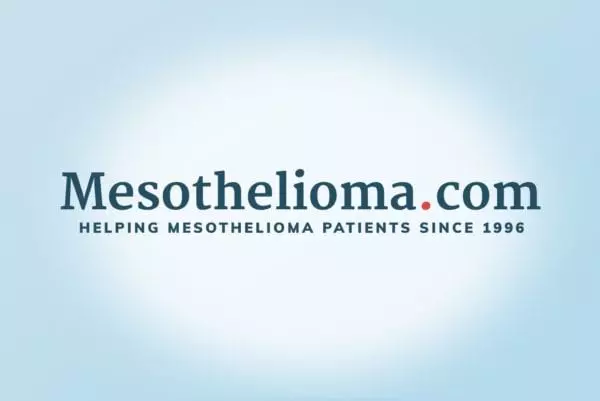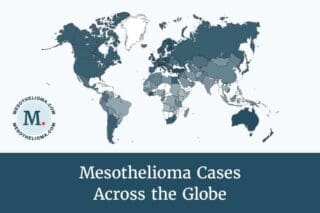A strange thing happened to me during my cancer treatment: I had the strong desire to help people, to give back, to inspire. I wanted to be an advocate.
It happened slowly, starting out by speaking with other patients while I was still in the hospital, recovering from surgery, then speaking with patients and their families at follow-up appointments with Dr. Sugarbaker. It was a natural thing for me to do. I had always been one who wanted to make people feel good, and after not being able to return to my career once my cancer treatment was done, advocacy seemed like a perfect thing to do with my time and energy.
It started by sharing my story with others. Then I decided that a blog would be the best way to reach many more people, and in partnering with Mesothelioma.com, it has done just that. I have been able to reach literally thousands of people through working with them and a vast network of bloggers.
I have learned so much in the last 10 years, so here are my top 5 pieces of advice for those who want to become an advocate.
1. Educate yourself.
Living through mesothelioma surgery and treatment was not enough. It’s a good start, but it is a very small part of a bigger picture. I am constantly trying to educate myself on the newest therapies, the doctors who treat this disease, and where they are located.
In addition, I go to the Symposiums on malignant mesothelioma put on by the Mesothelioma Applied Research Foundation, because they have the most up to date information on the disease. I volunteer with The Asbestos Disease Awareness Organization to keep my finger on the pulse of the laws affecting asbestos and its victims.
You can never be too educated about the thing you want to advocate for.
2. Share Your Story.
There is incredible power in sharing your personal survival story with others. People want to hear about those who have fought and done well and beat the odds.
Use your voice, whether it be through a personal blog, or simply a CaringBridge page. People love a good story. Even if you have lost a loved one, advocating on their behalf, in their memory, and sharing their personal story always inspires others.
I can’t help but think of my friend Bruce, who passed away as a result of mesothelioma but lived a really amazing life well beyond his initial prognosis. He continually inspired thousands with his gift and love of music. His legacy of music will live on through all the lives he’s touched. The story of Bruce, and the love of his life, Beth Anne, is one that will stay with me forever.
3. Get Involved.
Getting involved in the cancer community was one of the best things I’ve ever done. There is no one who understands the struggle like another cancer patient.
I don’t just volunteer with strictly mesothelioma groups, although that is my main area of focus. I have gotten involved in a couple of other platforms as well. Stupid Cancer, is for young cancer patients under the age of 40, and since I was diagnosed before I was 40, I got to slip in. Their mantra is, “Get Busy Living,” and they have monthly meet-ups all over the country. Through my local Twin Cities chapter, I’ve met some amazing cancer warriors and have learned so much about other types of cancer. It goes back to my first bullet point about educating yourself.
Another fantastic organization is Imerman Angels. They provide free one-on-one cancer support for cancer fighters, survivors and their caregivers. I’ve had the wonderful opportunity to mentor people all over the country, and have been able to serve as a conduit for them to get support from online and phone in groups they would otherwise not be aware of.
Because of the treatment I went through, I’m able to mentor not only meso patients, but those with other types of lung cancer. Through my mentoring, beautiful and immediate friendships are formed and the bond shared is so unique.
You are a life raft in a sea of uncertainty and can offer a lifeline they can’t get from family. It is much needed by all patients. Your individual experience can help a myriad of people, and by utilizing resources, getting involved is the best way to be an advocate.
4. One size does NOT fit all.
Cancer is not one disease. It is many different cell types and many different diseases. Mesothelioma alone has three main types (pleural, peritoneal and pericardial), along with three cell types (epithelial, sarcomatoid, and biphasic), all of which respond far different to treatment.
The treatment and surgeon I had are not the right solutions for everyone. I learned this early on. My friend Doug and I were diagnosed at the same time, had surgery days apart, both having had an extra pleural pneumonectomy. But that is where the similarity ends. He went on to do six rounds of chemo, I only had four. I had IMRT radiation, he had none. It is not my job as an advocate to tell him he is doing things right or wrong, my job is to support him and his medical team’s decisions.
I’m not medically trained and although I’m very aware of all that is offered I would never be so bold as to offer medical advice. Mary Hesdorffer who is the director of the Meso Foundation is someone who I trust with that area. She is not only the director, but the medical liaison, and is a practicing licensed Nurse Practitioner, working at the National Institute of Health as well. She has sound medical knowledge and a vast network of doctors from which to draw on their experience, and I often refer people to her, knowing it is out of my area of expertise.
My job as an advocate is not to make you second guess your treatment options or choices. It is important to put my own experience on the back burner, and to help you make the choices that are right for you. I may not agree with a strict vegan diet and using marijuana to help with side effects, but if it is helping you and it is the path you choose, then I will support you.
I will do my best to find resources and information so you and make informed choices. I will not ever disparage your choice of doctors, or medical centers. If you ask for suggestions, I will happily give you advice, but I would never dream of forcing my choices on you. That is not advocacy – that is being a bully.
I’ve seen it happening too often that people think their doctor, or that their way of treating the disease is the only way to do it. It’s simply not true. Although surgery is still one of the best ways to treat mesothelioma, it is just not the right answer for every patient, and knowing that is key.
5. Take Time for Yourself.
Being an advocate is not easy. You are dealing with many serious health issues, and it is really easy to take them on as your own burden. It is hard to not feel for people when they are having complications and not responding to treatment. Or when there is a reoccurrence after a few years, it is like it happened to you.
It’s okay to get upset, and it’s ok to cry. It’s hard not to have everything you went through come back and you yourself have anxiety. That’s why it is vital that you care for yourself and set some boundaries.
The thing is, being an advocate is not a 9-5 thing. People need you when they need you. Nights, evening, weekends… You need to make sure that you don’t give everything you have to those you help.
What I have found though is that by giving, I am fulfilled. By helping others, calming their fears, and encouraging them, I am able to get out of my own head and concentrate on others. I have realized that by being the calm in the storm for them, I become stronger. Don’t get me wrong, I’m not all wine and roses about it. I have been diagnosed with PTSD, and have bouts of anxiety that I deal with, but I also took steps to figure out how best to deal with the situation, so I could help others if they find themselves in the same situation.
I found a great therapist who has helped me identify the anxiety triggers and had taught me how deal with them. This knowledge was incredibly empowering and has been a lifesaver for me. It is part of my self care. I saw her weekly for awhile, and now just check in every 6-8 weeks so I can stay on track.
I also make sure I sleep well, spend time with loved ones who fill up my tank and find joy in every single day. I always remember where my strength comes from, and for me? It’s God. A power larger than myself, someone stronger than me that I can put all my trust, hopes, and love in. He keeps me filled.
It’s not always easy, and there are days that when I want to just throw in the towel. But then someone tells me how much my help meant to them and it brings me back to center. After all, being an advocate is not about me – it’s about helping others. And that is the best thing I’m able to do.
Being an advocate is an incredibly rewarding life. To me, it is a calling, a vocation, something I am meant to do. I was given a second chance at this life, and I don’t want to waste it. If you feel led to the same path, I hope you take some of my suggestions to heart, and I hope you find it as fulfilling as I do.
And if you need me? You know where to find me. I’m always happy to help.





